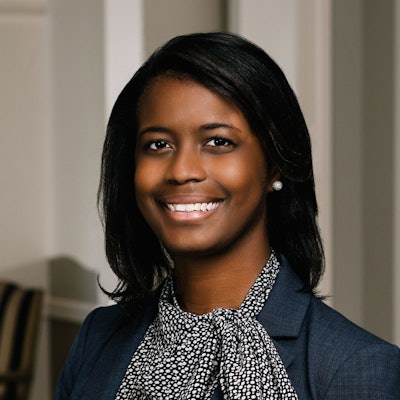Morehouse College’s Social Problems course typically fills up with freshman and sophomores who want to wrestle with some of the knottiest issues of our time, including interpersonal violence, political corruption, pollution, homelessness, and racial and ethnic conflict. It’s a challenging class that Dr. Kendrick Brown, Morehouse’s provost and senior vice president of academic affairs, describes as the best of what the school has to offer. But starting this fall, Social Problems will have a cohort of new enrollees: high school students from low-income backgrounds who may have never heard of Morehouse or even of HBCUs.
It's one of the new offerings coordinated by the National Education Equity Lab, an educational justice nonprofit that brings credit-bearing college courses into Title I and Title I-eligible high schools, at which large numbers of students come from families with little money. The courses are designed to be substantially similar to those offered on campuses: they’re taught by the same professors, who deliver lectures asynchronously via video conference, using the same materials and assignments. Grad students serve as teaching fellows, facilitating discussion sections and grading student work. Students have risen to the challenge, with 83% having passed their courses as of spring 2021, and many reporting a broadened sense of their college possibilities.
The initiative has grown rapidly since it started in 2019, offering a single Harvard course, Poetry in America: The City from Whitman to Hip-Hop, at 25 high schools in 11 cities. It now coordinates classes from over a dozen colleges and universities, including Yale, Stanford, and Wharton, at over 100 high schools. But as it looks to expand into every Title I high school in the United States, the Ed Equity Lab is placing a special emphasis a particular category of higher ed institution: HBCUs.
Although 90% of the high schoolers in the Ed Equity Lab’s program are students of color, roughly half of them had been unaware of HBCUs, according to a recent survey. The Lab is looking to change that. Morehouse is the most recent addition to the program, which has included Howard University since 2020 and Spelman College since 2022. More partnerships are currently being explored.
 Laura Moore, managing director of strategy and policy for the National Educational Equity Lab
Laura Moore, managing director of strategy and policy for the National Educational Equity Lab
“Our HBCU partners bring a really unique understanding of how our students have traditionally not been well-served by higher education, but also society more broadly,” she said. “I think they bring that ethos to their work.”
This is evident in the unique courses that they offer, such as Spelman’s class on the Education of Black Girls. The course traces schooling from pre-colonial West Africa to the present and covers the historical, political, and social factors that have affected the education of African American women.




















